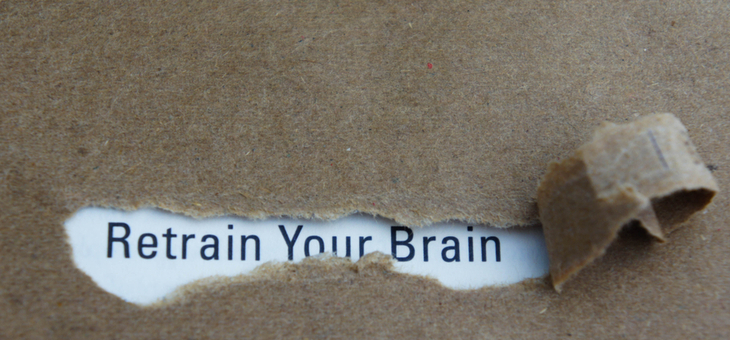With the outbreak of a global pandemic, it is now more essential than ever to take care of your mental health. While the whole world may be facing this crisis together, it is easy to feel overwhelmed, isolated and alone.
Fortunately, there are positive practices that can help you remain grounded, positive and in touch with yourself.
Psychotherapist Padma Ali spoke with MindBodyGreen (MBG) about retraining your brain in response to a crisis. She suggests that how you have previously responded in a crisis, and the way you usually think about the world, are predictors of how your brain will respond under pressure now.
“Do you generally view life as something that’s happening to you,” Ms Ali asked. “Do you feel trapped and helpless? If so, that same reaction will occur now.”
There are four main steps in retraining your brain:
1. Accept your feelings
From a young age we are trained to believe that experiencing negative emotions such as fear, sadness, distress or panic is an inherently bad thing. Ms Ali notes that we spend a lot of time doing mindless activities to distract ourselves from how we feel. “When we feel something uncomfortable,” she said, “we’re so trained to numb those feelings.”
Ms Ali goes on to explain that we must accept, rather than fight, our feelings. Like many other challenges we face, postponing them rarely helps, and may even make us feel worse. “You can’t change how you’re feeling,” she said, “but you can change how you choose to respond to those emotions.” Rather than watching TV or spending time on social media to distract yourself, practice a healthy habit such as stretching, cooking a healthy meal or some light exercise to relax and nourish your mind and body.
2. Be kind to yourself
“We’re dealing with unprecedented times,” Ms Ali told MBG, “so whatever you’re experiencing is normal.” It’s easy to feel frustrated with yourself for feeling anxious or overwhelmed. There is a lot of pressure as an adult to always be on top of things and keep yourself together. This is ridiculous, especially given how unpredictable and uncertain these times are.
Being hard on yourself only makes it easier to feel overwhelmed. Instead, try treating yourself as you would a close friend or a child. It’s probably been a while since someone has comforted or taken care of you. Be as kind and compassionate to yourself as you can.
3. Meditation
In order to deal with emotions, you must face them. Practising medication is a great way to work through the discomfort of more difficult challenges, allowing you to move on. “If you sit with the hard emotions, they will pass through you,” Ms Ali said. “It’s like whack-a-mole, the emotions never go away – they just show up in a different way.”
You can find a range of free guided meditations on YouTube, or by downloading apps such as Headspace.
4. Breathe
Breathing consciously is more than just drawing air in and out, it can be used as a tool to anchor yourself in your body and in the present moment. Ali has three simple steps to help with your breathing:
- Locate the part of your body where you are carrying the anxiety, pain or discomfort. She notes that this is often in the head, the stomach or the chest.
- Lay your right palm over this part of the body.
- Breathe in through your nose and out through your mouth. With each exhalation, focus on releasing your discomfort.
“Those self-care practices right now are non-negotiable,” Ms Ali told MBG. “They’re not a luxury; they are a necessity. We have to take care of our minds and our bodies right now if we’re going to get through this.”
If you enjoy our content, don’t keep it to yourself. Share our free eNews with your friends and encourage them to sign up.
Related articles:
Things to do when stuck at home
How to wake up brain and body
Meditation can alter Alzheimer’s

